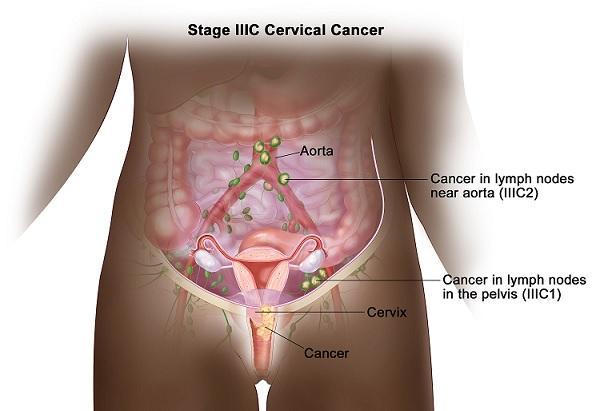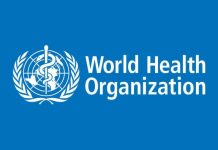
“Unfortunately, no one could unruffle our puzzle as doctors merely observed that she was growing pale and emaciated, yet all they could do was just to replace the lost blood perhaps the cause of the drainage wasn’t interested to them”.
“It all began with periodic blood transfusion, at least four pints of blood each time doctors discovered my late mum was anaemic”, Oghenekaro, a 28-year-old lady, who lost her mother to the cold hands of death a year ago, narrated her late mum’s ordeal with cervical cancer.
“Being an asthmatic, who had suffered some chronic health challenges earlier in life, whenever she was not feeling too well, my dad doesn’t hesitate in taking her to the clinic for examination and treatment. For good one year and half, before the condition was diagnosed, she was always given blood whenever she was sick.
“Whereas, one question that kept ringing in our hearts throughout this period was, what was the cause of this blood shortage in her system usually within the space of 4 to 5 months?
“Unfortunately, no one could unruffled our puzzle as doctors merely observed that she was growing pale and emaciated, yet all they could do was just to replace the lost blood perhaps the cause of the drainage wasn’t interested to them.
“The first transfusion happened at a private hospital in the Ikorodu area of Lagos State. The second time, we took her to another private hospital, thinking that was bigger, better and well equipped than the former, but it ended same way, as the doctors couldn’t detect the cause of her blood drainage.
“At another time, we were directed to a popular private hospital in Gbagada, where another round of transfusion was done. When asked the cause of the shortage of blood, they told us her bone marrows weren’t producing enough blood.
“Having acknowledged their incapacitation in changing the narrative, they referred us to the Lagos State University Teaching Hospital, (LASUTH) where she was given a three-month appointment date to come for consultation as the consultant list was already filled with patients. Looking at her deteriorating health condition, we pleaded for a closer appointment date, but when our pleadings fell on deaf hears, we decided to take her home, to seek an alternative healthcare in other hospitals.
“As the clock was tickling away and my mum was gradually dieing, my uncle in England volunteered to be responsible for the bill as he directed us to Babcock University Teaching Hospital, Ilishan Remo, in Ogun State.
“Although it was a total departure from other facilities we had visited as the serene environment with passionately care from the practitioners was enough to bring the needed healing, but it also took them a while before they could detect it was cervical cancer. It was exactly a year and half the battle began that Nigerian doctors were able to diagnose my mum of cervical cancer.
“At this time, they discovered it has progressed to stage four, though she was always complaining of stomach upset which had been causing her to stool blood without her knowledge, until she looked into the latrine after defecating one day that she saw blood.
“Surgery was recommended and conducted, followed with chemotherapy, millions of naira spent, but all to no avail as my mum eventually breathed her last breath on 22 August, 2020, at age 63, an unforgettable day in my life”, she recalled with teary eyes.
Though very pathetic, the case of Oghenekaro’s mother is just one out of the several Nigerian women who die of different types of cancer on daily basis.
The World Health Organisation (WHO) 2019 Cancer Report shows that cancer is the first or second leading cause of death before the age of 70 years in 112 of 183 countries and ranks third or fourth in a further 23 countries.
Analysing the top 10 leading cancers in the world, Globocan 2020 Report identified prostate cancer in men in 112 countries, followed by lung cancer in 36 countries, and colorectal cancer and liver cancer each in 11 countries, among others. In contrast to men, the most commonly diagnosed cancer in women is dominated by two cancer sites: breast cancer (159 countries) and cervical cancer (23 of 26 remaining countries).
Narrowing it down to Africa, where over 1 million new cancer cases in 2020 were estimated, the 2021 Globocan Report shows; the global research estimates that by 2030, there will be a 70% increase in new cancer cases from Africa due to population growth and aging.
Coming down home to Nigeria, an estimated 79,000 cancer deaths occur annually, and 125,000 new cases are diagnosed from the population of over 200 million people.
Expatiating on the burden of cervical cancer in Nigeria, Managing Director/CEO, JNC International Ltd, Clare Omatseye; decried the avoidable deaths of women from cervical cancer in Africa and Nigeria in particular, due to lack of awareness, limited screening centres and financial burden which many families cannot shoulder.
Bemoaning the situation further, she said: “Cervical Cancer is fundamentally 100 per cent preventable, yet it means that at least 1 Nigerian woman dies every hour”
She attributed several factors to this development noting that for a change to take place, tsome indexes must be considered for proper turn around.
“Since statistics have shown that more than 20 per cent of cervical cancer cases are found in women over 65, and as cancers rarely occur in women who have been getting regular tests to screen for cervical cancer before they were 65, our women must cultivate the culture of going for regular screening’, she stated.
Like Oghenekaro’s mother, who presented at a later stage, Omatseye averred that majority of the cases in Nigeria present at late stages 3 and 4, when the disease is only amenable to radiotherapy. Again, she also observed that lack of adequate radiotherapy facilities (especially Brachytherapy) in the country has compounded the late presentation giving the women almost no chance at survival.
In agreement with Omatseye, Dr Matilda Kerry, a public health physician and cervical cancer advocate in a chat with Pharmanewsonline expressed displeasure with the rate at which women are coming down with the condition which is preventable.
“It’s unacceptable that Nigerian mothers, wives, girls are dying of cervical cancer, because eliminating of cervical cancer is real”, she remarked
Kerry, who founded the George Kerry Life Foundation in 2007 along with a community-based cervical and breast cancer awareness and screening programmes, noted that eradication of the disease requires a multi-sectoral approach, as individuals, organizations’ and government have major roles to play in ending the daily tragic stories.
According to her: “No single organisation has all it takes to fight cervical cancer. It takes a multi-sectoral approach to eliminate it”,
She urged other well-meaning Nigerians and corporate bodies to emulate the example of her foundation as they sponsored the screening of 1000 women during the last Cervical Cancer Awareness Month in January.
Omatseye, in addition urged government to intensify awareness creation activities on HPV vaccination, which is already included in the national rountine vaccination, as primary prevention method.
For secondary prevention, she recommended screening for ladies from the age of 25, a 5-year screening interval after a negative HPV test; women treated because of positive result and tested negative during follow up should revert to the initial 5- year HPV testing interval; while the finding of HPV 16 and 18 in HPV testing requires immediate colposcopy.










